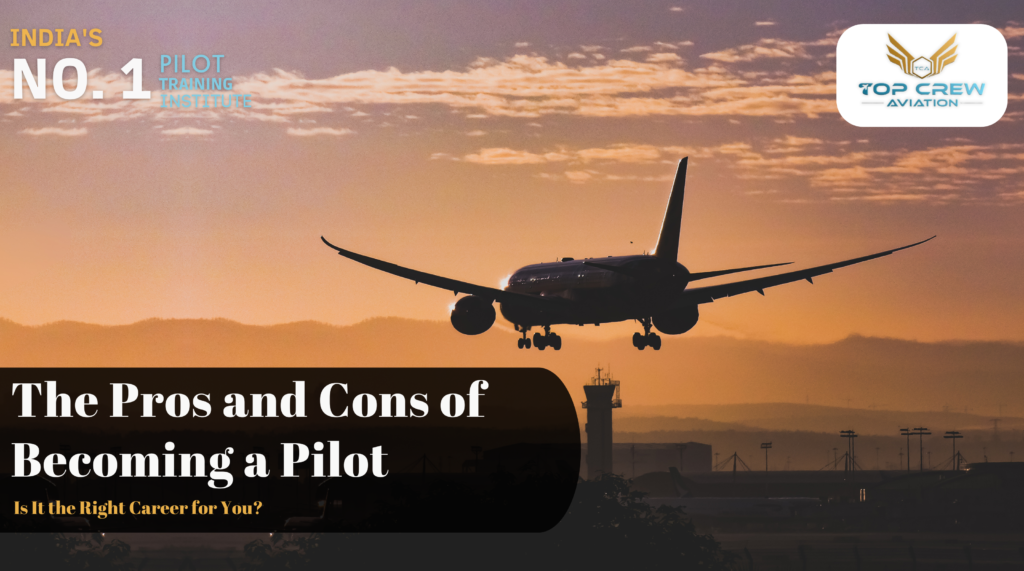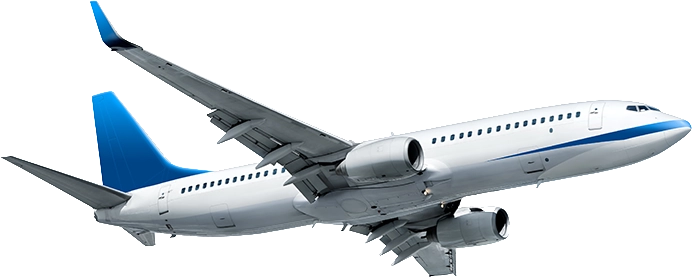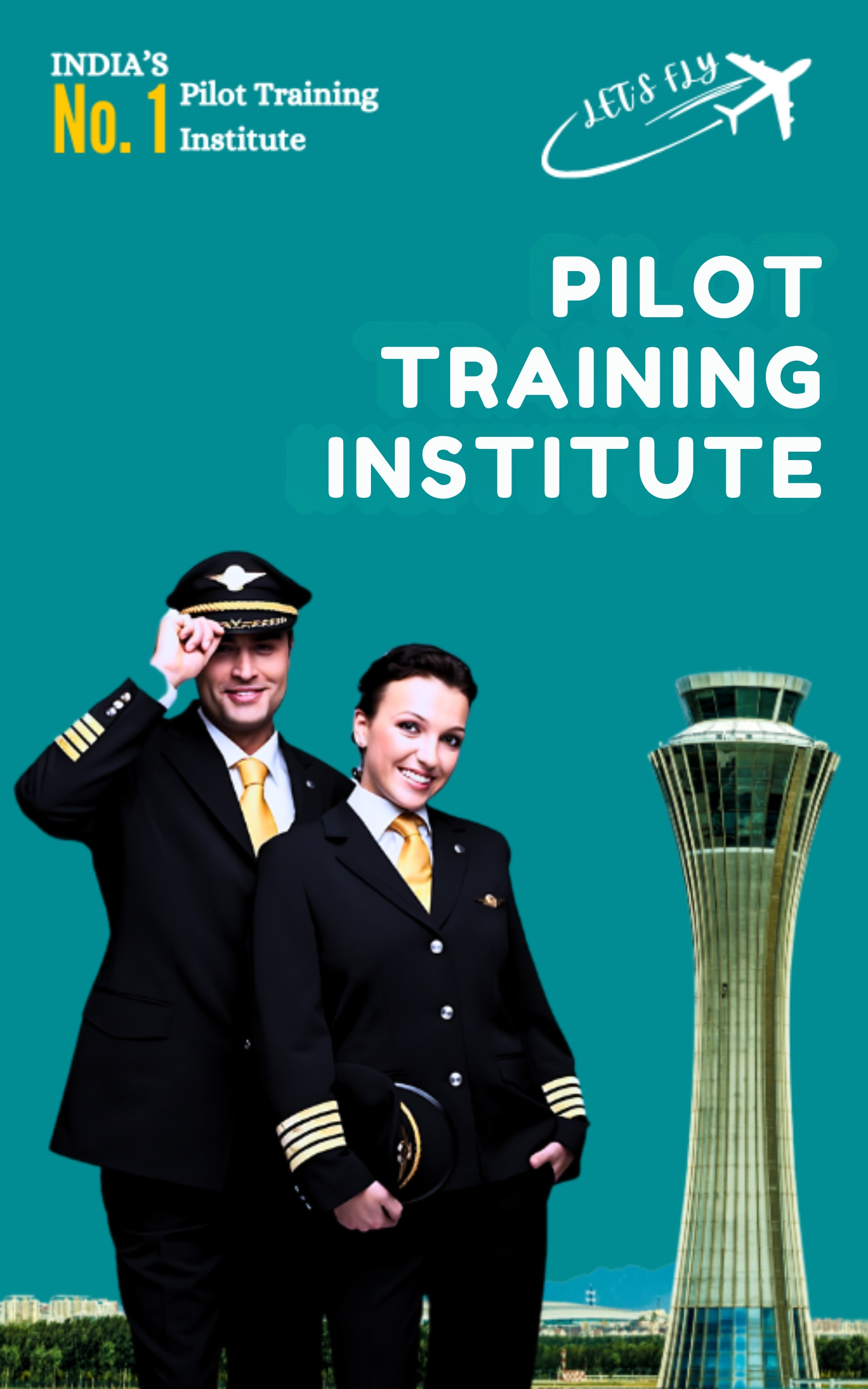The Pros and Cons of Becoming a Pilot: Is It the Right Career for You?
Becoming a pilot is a dream for many, the conditions offered are adventure, status, and the thrill of soaring high above the clouds. It is a profession with great glamor because, apart from respect, one gets handsome rewards. Like every other profession, though, there are advantages and disadvantages here, and it needs consideration before one can gravitate toward this field. This blog conveys the pros and cons of becoming a pilot and will help weigh this against future choices.
Pros of Being a Pilot :-
High Salary and Benefits
Salary has always been one of the essential advantages of becoming a pilot. Commercial airline pilots, especially those with years of experience, can profit from their work. More benefits include health, life insurance, and retirement plans. Even travel perks are given to pilots and their families so they can travel to different destinations almost without spending a penny on their tickets.
The remunerations for new pilots are low, but the pay increases with experience and promotions. For example, some of the more senior pilots and those who fly for major international airlines can collect over seven figures salary in a year. Thus, it is indeed a good career for many people in terms of finances.
Thrilling and Adventurous Lifestyle
Pilots lead an exciting life for people passionate about traveling and adventure. They travel more frequently than any other profession, visiting new cities and countries and experiencing different cultures and landscapes. Falling asleep in one part of the world and waking up in another is a reality for many pilots. Often, this changeability and exposure to so many different places are the most enticing aspects of the job.
This is not an ordinary routine, and if you like the thrill of the new, you will have thrills flying from one destination to another and enthusiasm for a long time.
Prestige and respect
First and foremost, piloting is an occupation with prestige and respect accorded to a few occupations. Pilots are well-trained professionals whose lives and safety are entrusted to them in charge of hundreds of passengers every time they leave the ground. Their responsibility earns respect, and many look toward pilots as an embodiment of expertise combined with calm when needed.
The pilot uniform is a vital commandment of respect, and there’s such pride in wearing something as highly elitist and skilled as an elite aviator.
Job Stability and Demand
Aviation is constantly growing and always needs competent pilots. Even during the worst economic conditions, air travel demand does not diminish enough to let jobs evaporate. So, job security is solid. Fluctuations in demand may be felt; this often happens due to external forces such as a worldwide pandemic and economic downturn, among others. On the other hand, the long-run outlook is excellent because of the yearly retirement of many aged pilots while the industry in the sector continues to expand. Therefore, airlines often look for newly qualified and experienced pilots to fill pilot positions.
Career Advancement Opportunities
The aviation industry has much room for career advancement. Often, the pilots start as relatively junior to fly smaller, regional planes. However, they may eventually work on larger planes, longer international routes, or airline management or training roles. Experienced pilots may also move into jobs such as instructor, safety officer, or even establish their flight school.
Military pilots usually migrate to coveted fields in commercial aviation after retirement, where they sit at the top of the list due to their superior training and experience.
Appreciation of Flying
At the core, it is a job for those passionate about flying. Many derive much personal satisfaction from the thrust of takeoff, the traversing of the skies, and the process of landing safely on the ground. If, all one’s life, one has coveted being in the cockpit, guiding that airplane across the clouds, then becoming a pilot will fulfill a lifetime passion and bring a deep sense of fulfillment to one’s life.
Cons of being a Pilot:-
It is expensive to train and get the license
The most significant challenge to becoming a pilot is the financial cost involved in training. Getting a commercial Pilot license involves arduous training that demands substantial money. It may go beyond tens of thousands of dollars with tuition fees in flight school, licensing fees, and all the expenditures involved with the requirement of building flying hours. For most people who want to become pilots, this is associated with the hope of borrowing loans and getting financial support, which may be pretty intimidating.
Furthermore, pilots must constantly renew their licenses and keep updated with new techniques and regulations throughout their careers, which adds even more expense to their costs.
Long Working Hours and Jet Lag
Work hours may sometimes be long, sometimes for extended periods, regardless of whether it is during weekends, nights, or holidays. Some pilots have to stay out of home for an extended period due to varied flight routes and encountering different time zones; hence, the individual is likely to experience chronic jet lag and sleep cycle disturbance. The irregular work schedule may be problematic regarding the ability to balance health aspects of life while working.
This also affects shift scheduling. Younger pilots tend to have less desirable schedules and work longer physically and mentally demanding hours.
Time Away from Family
Being a pilot can mean being detached from their loved ones for extended periods. Pilots flying international routes sometimes stay away for several days or weeks, which can strain personal relationships. It is not rare for pilots to miss important family events, holidays, and milestones; the bigger problem with this is that it commonly occurs during the initial years of a pilot’s career.



